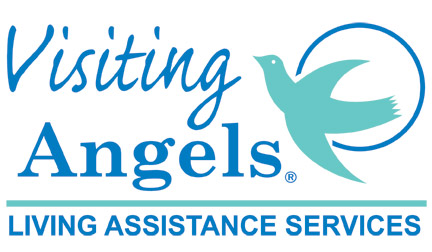Are You An Informal Or Family Caregiver For An Elderly Person? If You Are, You Are Not Alone.
Most Americans will be informal caregivers at some point in their lives. Each year, more than 44 million Americans (21% of the adult population) provide unpaid care to an elderly or disabled person 18 years or older. This is extremely significant, as it represents 80% of all long-term care in the United States. Caregivers can be people of almost any age, but most caregivers are middle-aged or older women who have jobs in addition to caring for an elderly person. Most of these women have changed hours or working conditions in order to care for their elderly family member.
Sound Stressful? It Is. Take Our Caregiver Stress Questionnaire To See If You Are Under Too Much Stress And To See If Our Suggestions Can Help You.
* Do you feel frustrated and angry while you take care of someone?
* Do you feel guilty about the quality of care you provide because you are so busy?
* Do you feel that giving care has hurt your social life?
* Are you exhausted when you go to bed at night?
* Do you feel overwhelmed?
* Have you recently gained or lost a lot of weight?
* Have you lost interest in activities you used to enjoy?
* Are you easily irritated or angered?
* Are you constantly worried?
* Are you often sad?
* Do you get headaches or experience other physical problems?
* Do you abuse alcohol or drugs, including prescription drugs?
If you answered "yes" to 8 or more questions above = high stress.
If you answered "yes" to 4-7 questions above = medium stress.
If you answered "yes" to 0-3 questions above = low stress.
Ways To Reduce Caregiver Stress
Focus on the rewards of caregiving, and giving back to a loved one. Being a caregiver strengthens your relationship with the person receiving care and makes you feel needed, boosting your self-confidence.
Make sure you are at your best:
* Get your prescriptions filled
* Keep your own doctor and dentist appointments
* Eat healthy meals
* Get enough sleep
* Exercise vigorously at least 45 minutes each day
* Do something just for yourself at least once a week
Talk to a counselor, psychologist, or other mental health professional right away if your stress leads you to physically or emotionally harm the person you are caring for.
Find out how to deal with your loved one's disease. This will help you take a positive approach to the daily questions and issues you will be presented with. You may be able to find a hospital or local agency on aging that offers classes on caring for people with that disease. Do research with doctors, nurses, on websites, and at the library. The more information you have, the easier it will be to prepare for issues that arise.
If you do find that you are under stress from caring for your loved one, try these stress reducing tips:
* Get help from community service providers for:
-transportation
-meal delivery
-home health care services
-non-medical home care
-home modification for easier daily tasks
-legal and financial counseling
* Accept help from friends and family - this includes financial help.
* Say "no" to volunteer tasks, such as hosting holiday meals.
* Do the best you can and don't feel guilty about not being perfect.
* Prioritize your tasks and establish a daily routine.
* Stay in touch with family and friends.
* Join a support group for caregivers facing the same condition or disease.
* Try to keep your sense of humor.
Check with the human resource office at work. It may have suggestions which might be helpful in successfully managing both your job and your responsibilities taking care of your loved one.
Perhaps you will feel better about your loved one's safety if you purchase an emergency or surveillance device. These devices include emergency response systems (not for people with dementia), intercom systems, web cams, and mobility monitors. These devices can help with your peace of mind.
When You Need A Break, We Can Help!
When you need a break (and you will), please give us a call. Here at Visiting Angels
®, we will come to your loved one's home and perform any number of household chores, run errands, prepare meals, assist with hygiene, and provide companionship for your loved one, and we're happy to do it! Our schedule is your schedule. We can give you a break whenever you need it the most. This includes anytime of the day or night, weekends and holidays included. And, let us discuss with you how affordable our rates are.
There Is A Solution -- Contact Us Today.
You've been working hard caring for your loved one, and you've been patient, but you need a break from time to time. Contact us to receive further information or to arrange for a free no-obligation assessment of your situation. Our friendly and knowledgeable staff is available to walk you through any questions or concerns you might have. Call us at either 813-909-2550 or 727-841-8440, or, if you prefer, send us an email to
wecare@visitingangelstampabay.com and we will get in contact with you.






